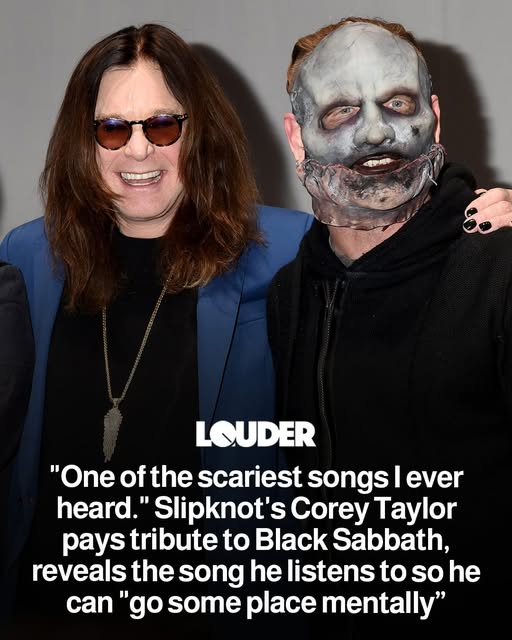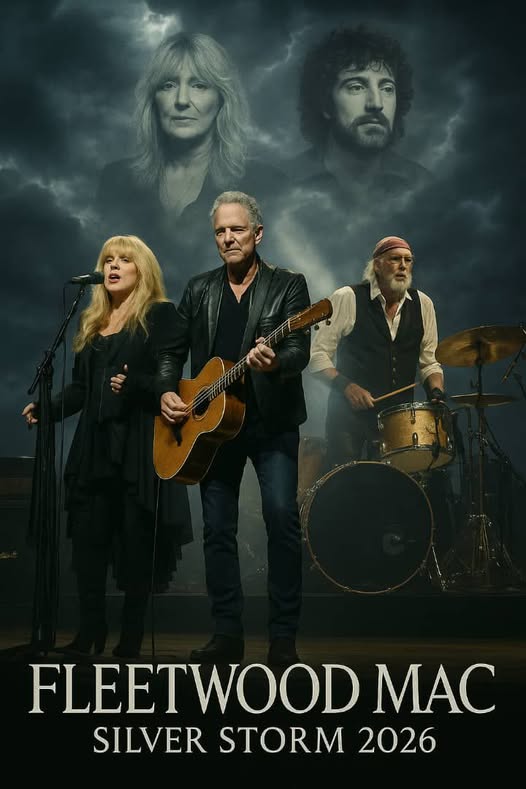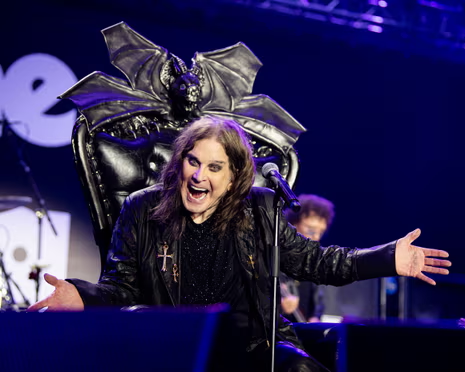🥁 Intro: A Show They Won’t Play—But a Legacy They Live
No, Slipknot won’t be playing Black Sabbath’s final show—but that doesn’t mean the legends of metal haven’t left their fingerprints all over Corey Taylor and the masked madmen from Iowa. In fact, Black Sabbath’s impact on Slipknot goes deeper than any tour date or tribute setlist. It’s woven into their DNA, in every drop-tuned riff, every scream of rebellion, and every theatrical eruption on stage.
The influence may not be overt, but make no mistake: without Sabbath, there might never have been Slipknot.
🎤 The Birth of Metal: Sabbath Set the Standard
To understand the influence, we need to rewind to 1969 Birmingham, England, where Black Sabbath—Ozzy Osbourne, Tony Iommi, Geezer Butler, and Bill Ward—emerged from the industrial ashes to birth a brand-new genre.
Heavy metal wasn’t just music—it was a revolt. Dark, distorted, and unapologetically real.
Slipknot, some thirty years later, would pick up that torch—turning the genre into a theatrical, chaotic, brutal symphony of aggression. But at the root of that chaos? Sabbath’s rhythm. Sabbath’s menace. Sabbath’s will to break rules.
🎭 Masks Meet Darkness: Theatricality as Tribute
Sabbath didn’t wear masks. But they wore fear like a cloak. Songs like Black Sabbath, War Pigs, and Children of the Grave turned religion, war, and mortality into musical horror stories.
Fast forward to Slipknot: their nine-member masked army took that darkness and cranked it up to eleven. Their stage shows are a masterclass in chaos. But the idea of embracing the theatrical to confront the terrifying? That came straight from Sabbath.
Corey Taylor has said as much: “Black Sabbath didn’t need to scare you with outfits—they did it with sound. We just brought both.”
🔥 Lyrical Legacy: From Doom to Catharsis
Where Black Sabbath gave us meditations on nuclear war, drug addiction, and mental breakdowns, Slipknot transformed those same themes into something even more visceral.
- Sabbath’s Paranoid → Slipknot’s Psychosocial
- Sabbath’s Iron Man → Slipknot’s Duality
Both bands tap into alienation, rage, and the horror of being human, but Slipknot translates it through the lens of 21st-century despair. The blood is fresher, the screams louder—but the pain is familiar.
That’s Black Sabbath’s impact on Slipknot: making it okay to bleed through music.
🧠 Corey Taylor: The Thinking Man’s Metalhead
Corey Taylor has always worn his influences on his sleeve. From Sabbath to Pantera to Zeppelin, he’s built a vocal identity that pays homage while forging something new.
Taylor once said: “Sabbath taught me that it’s okay to say the hard things. That vulnerability can be power. That anger is a language.”
That influence runs through every Slipknot album. Whether it’s the raw confessions of Iowa or the evolving maturity of We Are Not Your Kind, Taylor’s approach is Sabbath-ian in spirit—gritty, grounded, and gut-wrenching.
🎸 Sound Evolution: Sabbath’s DNA in the Riffs
Slipknot’s guitar work is often labeled as nu-metal, groove-metal, or even alt-metal. But dive deeper, and you’ll hear Tony Iommi’s ghost behind the riffs.
- Drop tunings?
- Doom-laced intros?
- Heavy, chugging breakdowns?
All of it harks back to Sabbath’s early sonic experiments. While Jim Root and Mick Thomson brought their own modern savagery to the table, the structure—the philosophy—owes a debt to Sabbath’s legacy.
🤘 More Than Music: A Shared Mission
What really binds the two bands is intention.
Sabbath didn’t want to be liked. They wanted to tell the truth. About war. About fear. About pain.
Slipknot didn’t chase radio. They chased release, for themselves and their fans. From the moment they hit the stage, covered in grime and emotion, it was obvious: this was about more than music. This was ritual.
Black Sabbath built that foundation. Slipknot turned it into a cathedral of chaos.

🧨 Breaking the Chains: Sabbath Taught Them to Be Free
The industry wanted Slipknot to clean up their act. Just like it tried to mold Sabbath into something radio-friendly. Both bands refused.
That’s the greatest lesson Sabbath gave Slipknot: never surrender your identity. Even if the world doesn’t get it. Even if they call you dangerous, demonic, or “too heavy.”
Both bands thrived not by fitting in—but by standing defiantly apart.
🎟️ Why Slipknot Not Playing Sabbath’s Final Show Feels Fitting
It may surprise some fans that Slipknot won’t be performing at Black Sabbath’s final show. But perhaps that’s the most respectful thing of all.
Sabbath’s farewell isn’t about star-studded tributes or guest appearances. It’s about finality. Legacy. Silence after the storm.
And Slipknot? They’re the storm that keeps on raging.
They’re the proof that Sabbath’s spirit didn’t die. It evolved. In Iowa basements. On festival main stages. Inside a generation raised on both Heaven and Hell and People = Shit.
📲 Social Media Ready Caption Ideas
- “Slipknot may not be playing Black Sabbath’s final show, but Sabbath’s soul lives in every scream, every riff, every riot. ⚫🔥 #MetalLegacy #Slipknot #BlackSabbath”
- “No Sabbath, no Slipknot. That’s not opinion. That’s metal law. 🤘 #RespectTheRoots #SabbathImpact”
- “They won’t share the stage—but they share the bloodline. #BlackSabbath #Slipknot #HeavyMetalHistory”
🏁 Conclusion: The Legacy Carries On
Black Sabbath’s impact on Slipknot isn’t just historical—it’s emotional. It’s artistic. It’s spiritual.
From the doom-laden streets of Birmingham to the fire-lit arenas of Des Moines, the torch has been passed. Not in a ceremony. Not in a final show. But in the language of distortion, defiance, and authenticity.
So no, Slipknot won’t play Sabbath’s last note. But they’ll carry its echo into the next era of metal—and beyond.
And that? That’s the most powerful tribute of all. 🎤🔥


